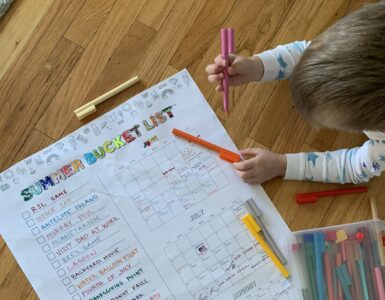It’s common to fantasize about living in a perfect world with perfect people
and perfect relationships. The hard truth is – we’re not perfect. And neither
are our partners.
However, according to marital experts you can be perfectly imperfect
together by embracing an ancient Japanese philosophy of Wabi Sabi. Studio 5
Contributor and clinical psychologist Dr. Liz Hale explains more.
The term Wabi Sabi is a concept derived from Zen Buddhist teachings that
means finding beauty and perfection in the imperfections. For instance, if
you had a large vase with a long crooked crack down the middle of it, a
Japanese art museum would put the vase on a pedestal and shine a light in
the crack OR they might fill the crack with 24-karat gold! Sadly, our culture
has conditioned us to expect perfection from our treasures, ourselves and
others, leading us into a perpetual state of frustration and dissatisfaction.
The human mind tends to be a fault-finding machine, focusing with laser-
like precision on what’s wrong versus what’s right.
FIND PERFECTION IN IMPERFECTION
Wabi-Sabi Love is the answer to the universal dilemma and struggle of living
with and loving another human being. The goal is to refine ourselves in such
a way that the imperfections are truly perfections! Imperfection is in, its own
way, more valuable than perfection itself.
Changing just one thing about how we look at our partner can alter our
entire perception. We always have a choice. Wagging a finger elicits a
different response than offering a hand.
Remember, the cracks are where the light gets in.
WEAR “ROSE-COLORED GLASSES”
Research at the University of Buffalo revealed that putting on “rose-colored
glasses” and idealizing your partner actually leads to more happiness and
relationship satisfaction. This is also known as the Pygmalion effect; the
phenomenon in which the greater the expectation placed upon people, the
better they perform. It’s a form of self-fulfilling prophecy. As mature adults,
we get to choose our thoughts and beliefs so why not intend and expect the
best out of ourselves and our partners? So, instead of being upset with your
partner for falling asleep while you were watching tv together Sunday Night,
savor and simmer the two previous nights when there were intimate
moments shared together. Be willing to become myopic on your focus of
what is good versus what isn’t.
CHANGE FROM “ANNOY” TO “ENJOY”
Think of something that completely drives you crazy about your mate. Then,
see how you can turn it around from something that annoys to something
that brings joy. One woman was so exasperated with her husband’s need to
stop and met new people and share silly jokes. She has heard all of these
jokes a million times and, furthermore, she gets annoyed because whenever
they are out and about running errands, she has to wait for him while he
stops and talks and entertains someone.
One day, while she found herself waiting for her husband for the third time in
less than an hour, she caught a glimpse of him sitting on the curb with a
little boy who seemed bored to tears and lonely, while waiting for his mother.
She could overhear him share a joke with the little boy that caused this boy
to burst out in laughter. Just then, this boy’s mother came up and flashed her
husband a huge smile for his kind effort…and in that moment, after a decade
of marriage, this wife finally understood her husband’s true nature. He
wasn’t trying to make her crazy…he was trying to make people happy. She
found beauty and perfection in what nearly made her insane.
SHARE PARTNER’S PASSIONS
It does require genuine effort to find your own passion in what your
sweetheart is already passionate about. For instance, soon, we will have
March-Madness, the college basketball playoffs. Many husbands love
basketball; many wives do not. (I apologize for the stereotype…but let’s use
this for an example.) One wife, married to a true college basketball diehard,
decided that this particular year she was going to embrace this specific
passion of her husband. She stated to join him on the couch and watch the
last 15 minutes of every game her was watching. Her husband seemed to
really delight in the fact that she genuinely became more interested in his
love for basketball even though she called the end of the quarter the “end of
the inning.” She began to appreciate how the kid in him lit up with every
great play and how he began to share more of his own collegiate career
memories as a basketball player, allowing her to appreciate and admire him
in a whole new way.
While you may never grow to love your partner’s passion as much as he or
she does, you can learn to ‘grow your own heart’ by learning how to love and
support the things that are really important to them. Talk about an instant
connector!
EVOLVE BEYOND WOUNDS
True love requires us to grow up and evolve beyond our wounds. As adults
it’s not IF we have wounds, but which ones DO we have. It is not the
responsibility of our partners or our marriages to heal us from them. But it’s
so easy to reject each other in our relationships when our partner seems to
“act out” or become hurt. When a young child falls down and scrapes his
knee we come to his aid by picking him up, drying his tears and soothing
him with Sesame Street Bandages. But when an adult acts imperfectly or
“falls” in some way, it’s much harder to extend the same comfort.
Unfortunately, we often shun and judge our partners without realizing that
his or her actions may have been triggered by an internal wound that we
can’t see. (I’ll give an example from my practice if there is time.)
BOTTOMLINE: When you find yourself obsessing about the cracks
in your partner, imagine filling the cracks with a bright light or 24-karat
gold. The one thing often lacking in any situation is that which we are not
giving…..remember to give acceptance to the perfectly imperfect.
**Additional Resources: “Wabi Sabi Love,” by Arielle Ford
A former radio host of Bonneville’s “Dr. Liz Hale Show,” Dr. Liz has become a
household name to many. As Studio 5’s resident shrink, she discusses a wide
variety of hot-topics ranging from sex to stress. (Sometimes all in the same
segment!)
Dr. Liz is a transplant from Seattle, Washington, although “a few” years ago
was a college co-ed cheering for the Utah State Aggies. While USU football
hasn’t changed through the years, she remains a loyal fan.
Dr. Liz, a Licensed Clinical Psychologist, has been in private practice for 12
years specializing in marriage and family relations. She currently serves as a
board member on the Utah Commission on Marriage and is a popular
speaker at their annual conference.
Her greatest joy in life comes from being with her own family and working
with other families along the Wasatch Front at her downtown SLC practice.















Add comment